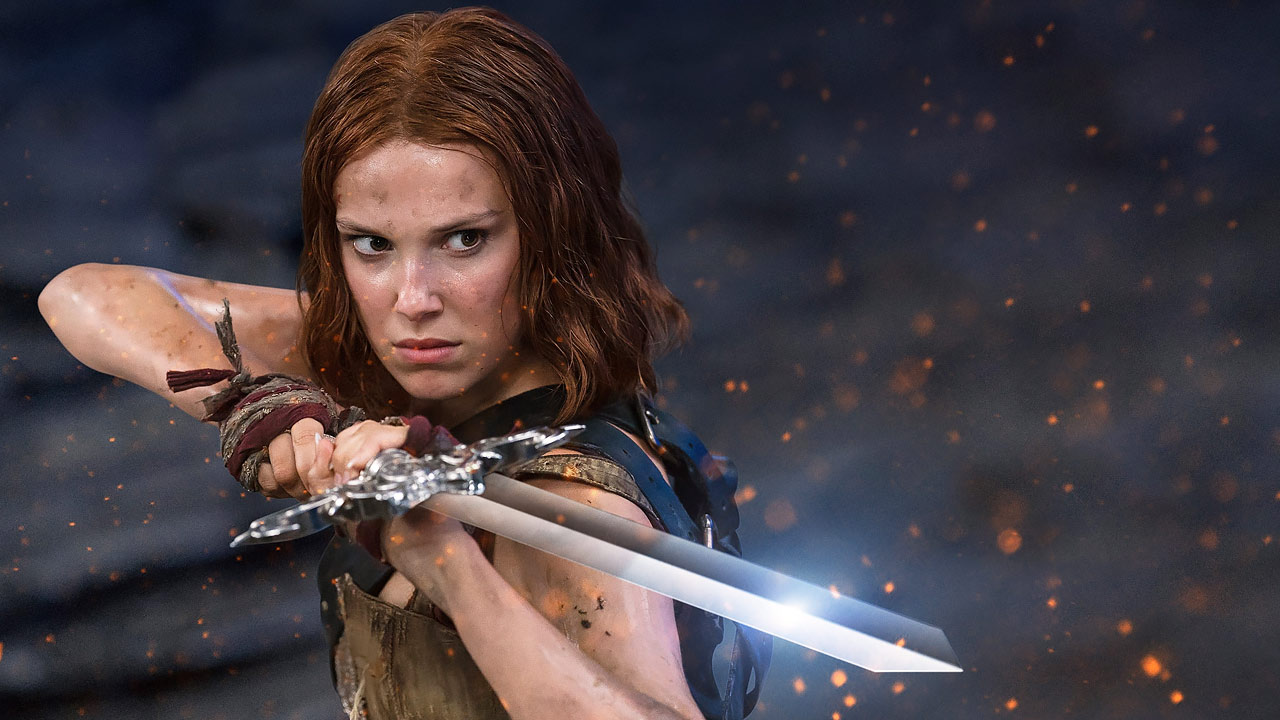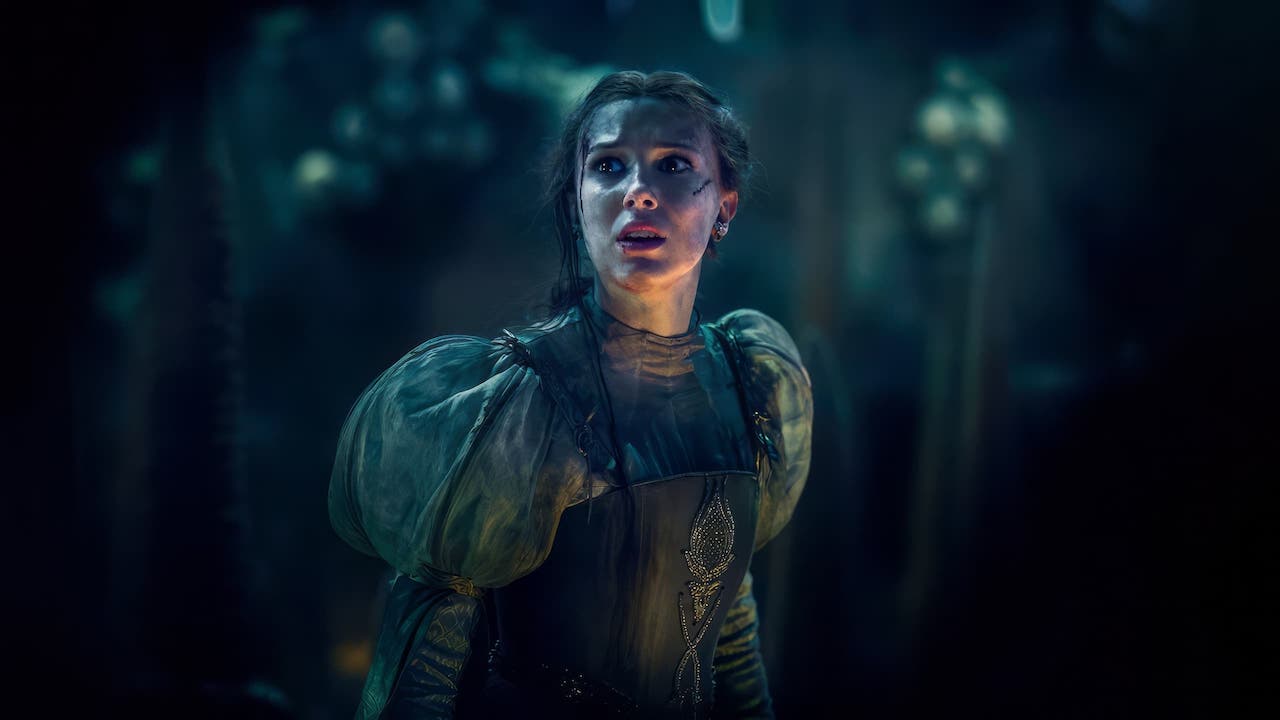Millie Bobby Brown delivers a rock-solid performance in the so-so Damsel
Stranger Things’ Millie Bobby Brown doesn’t take any guff in her new action movie, going head-to-head with a dragon.

Millie Bobby Brown attempts to outsmart a dragon in Netflix’s latest hit: a straightforward action-survival movie that doesn’t treat the audience like stimulus-craving idiots, writes Luke Buckmaster.
Subverting the “damsel in distress” trope is clearly the raison d’être of Netflix’s so-so medieval action movie about a princess, played by Stranger Things‘ Millie Bobby Brown, who gets dealt a very bad hand when an arranged wedding goes spectacularly awry. Think “Red Wedding” and you’re approaching the right ballpark. But our hero is no pushover: the first time Damsel unveils Elodie—the aforementioned princess—she’s chopping wood, which is cinematic shorthand for “this person can’t be messed with.”
When the protagonist returns to her crusty old castle, her father—Ray Winstone’s Lord Bayford—reads a letter from the Queen of Aurea (Robin Wright), proposing Elodie partake in an arranged marriage with a handsome prince from a far away land. Bayford’s kingdom is cash and resource depleted, so off they scoot, hitting the high seas. Aurea has a shimmering, sunshine-dappled beauty and an air of unreality, but this place is like the pretty island from The Wicker Man—best to observe through a telescope, out of reach of the locals.
Elodie hopes her hubby-to-be is “well read and kind.” She discovers quite the opposite (although he might still be well read…) when she’s thrown into a cave for a dragon to eat, falling for the old “arranged wedding that’s actually an ancient sacrificial ritual for a fire-breathing monster” trick. Elodie finds herself in a very tight spot, attempting to outsmart the dragon in an apparently impossible to escape location. The film spends a lot of time in that cave—most of it takes place there—eventually triggering a revenge movie trajectory whereby the person who has nothing to lose won’t quit until blood’s been splashed around like cheap wine.
But don’t go in expecting Game of Thrones crossed with Kill Bill. This film is more like a knock-off The Hunger Games, featuring a talking dragon (voiced by Shohreh Aghdashloo). For a long time I thought it lacked pace and rigor, because it was spending so much time pussyfooting around in that cave, delaying the inevitable hell-raising. I realised too late that the cave is this movie, more or less; talk about letting one scene—or one location—breathe.

Damsel is narratively uncluttered if a little lop-sided. Its simple structure works in long and large beats, beginning with an unhurried first act that takes around 50 minutes to arrive at where the trailer landed in about 50 seconds. It’s never exceptionally well made or deeply engaging, but it’s not terrible either; at least director Juan Carlos Fresnadillo can’t be accused of treating the audience like stimulus-craving knuckleheads. And Brown delivers a solid anchoring performance, grounding the film during occasions—such as dialogue exchanges with the dragon—that could’ve gone pear-shaped.
There’s a nice moment when Elodie discovers, on a wall in a secluded spot in the cave, the names of women who’ve been there before, plus clues and a map. This moment is robbed of subtlety when these characters from yesteryear are summoned onto the screen, fully rendered and brought back to life, which feels cheesy. But it’s a memorable scene with a simple, salient message: that kind deeds performed in the present make a difference to the future.
Damsel‘s bland artifical-looking veneer might’ve improved with moodier lighting, and some dust and gunk thrown on the lens. I do however quite like the way it reduces a potentially sprawling adventure into a more bareboned trajectory, ultimately arriving (no spoilers) at a single, resonant final image. Thank god they didn’t ruin it by putting it on the trailer.























